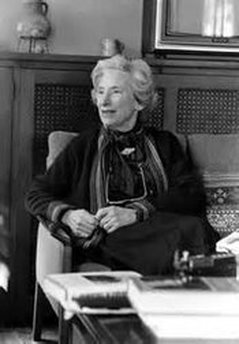 There's a lot of World War I fever going around during the 100th anniversary of the Great War. Many books on the topic have been written in the last few years and I've read some for a future project. I agree with others that the best book on the events leading up to the war and the period until the 1st Battle of the Marne in September of 1914 is still Barbara Tuchman's 1962 Guns of August: The Outbreak of World War I. I've used a 2014 article from the The Daily Beast by James Warren and two books, July 1914 by Sean McMeekin and Dreadnought by Robert Massie for this blog to re-visit Tuchman's achievement. The Book Historians still debate the Great War’s causes and consequences. The assassination of Archduke Franz Ferdinand, heir to the throne of the Austro-Hungarian Empire and his wife Sophie in June 1914 at Sarajevo, Austria- Hungry, wasn't considered a war-worthy event by his family or the rest of the world. After all, the archduke married beneath him, an act his family never forgave, and the royals were visiting an unfriendly country with Serbian dissidents. Tuchman covers the historical part of the war that is harder to understand than the assassination or the resulting war itself—July 1914. Many historians agree that it's a complex period when diplomacy was strained by a system of alliances and understandings worked out among many nations to deter war. But, national chauvinism was fostered by generals trained to secure military advantage in times of crisis rather than to work with diplomats to defuse problems. Each day brought new challenges, and no one knew how to negotiate without losing face, so German forces marched through neutral Belgium, and on to France. In the end, all five major European powers and their allies participated in a bloodbath that eventually caused the death of 20 million soldiers and civilians, destroyed three empires, and laid the groundwork for World War II. It was truly a lost generation. The Writer What enables one person to be able to take many interacting threads and be able to figure out how each weaves into the larger tapestry of a complex event such as a World War? Tuchman is said to have the acuteness of mental discernment and good judgment to know what to use among the myriad of documents involved. She selected just the right details and quotes. Her work provides such strong characterizations that it's hard to believe it's non-fiction. She never earned a Ph.D. or formally taught history. Tuchman called herself a writer whose subject was history. The Guns of August was on the New York Times bestseller list for over 40 weeks and won the Pulitzer Prize for nonfiction in 1963. Novice writers like myself who sometimes question themselves can take heart with Tuchman's comment on writing: "I just sat down and started all by myself. It never occurred to me that I couldn't do it as well as anyone else." Source: The Daily Beast http://www.thedailybeast.com/articles/2014/09/29/barbara-tuchman-s-the-guns-of-august-is-still-wwi-s-peerless-chronicle.html Next time: Using Song Lyrics in a Story
0 Comments
|
Archives
August 2020
Categories
All
|
 RSS Feed
RSS Feed